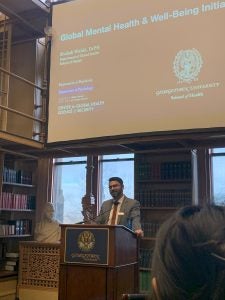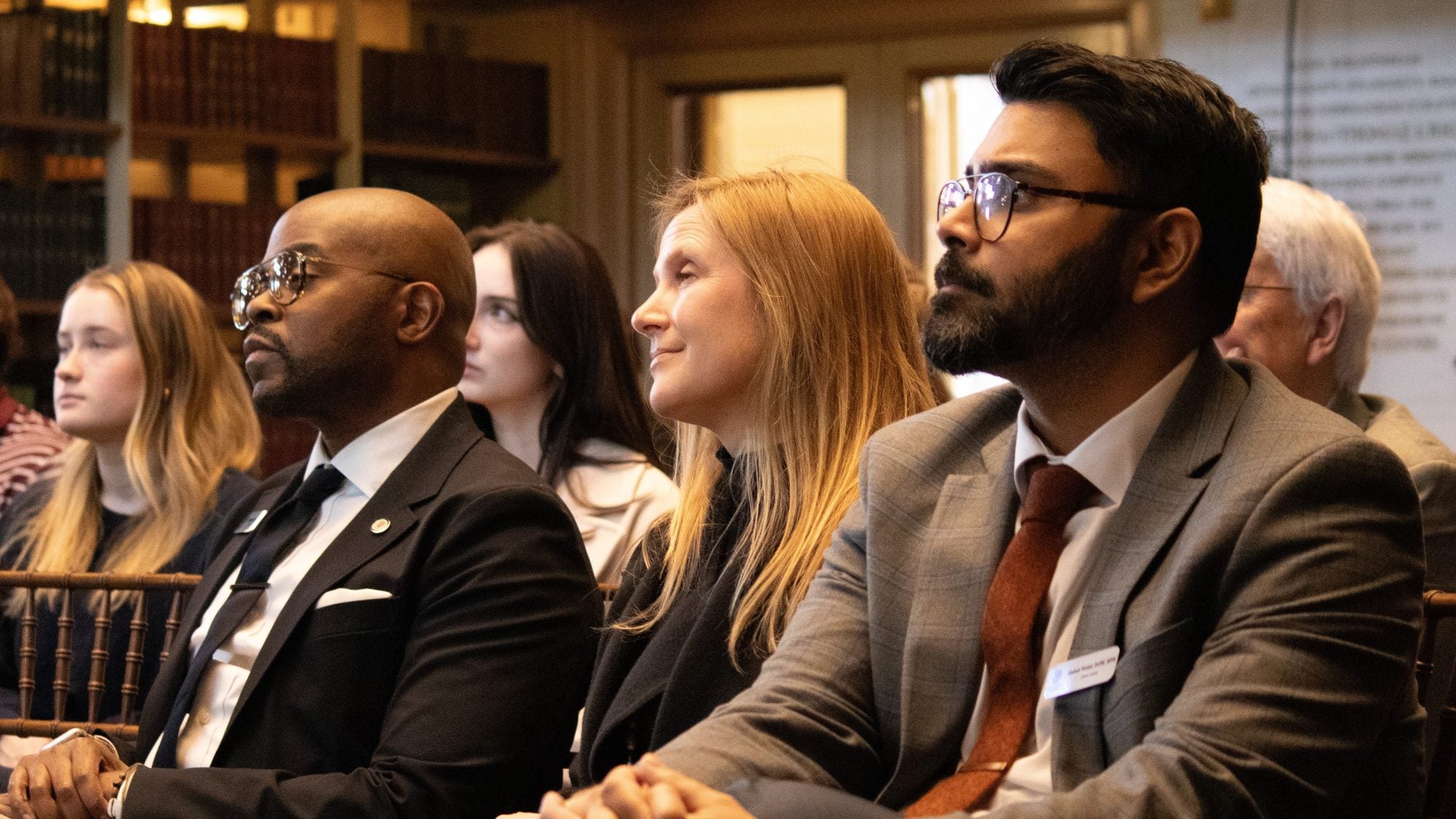Shabab Wahid spent his childhood on the move. Born in Bangladesh, he lived in Kenya and Nepal in his youth, before making his way to the U.S. for college and eventually Georgetown. At each step along the way, he experienced culture shock after culture shock while adjusting to new foreign environments

Years later, he followed in his mother’s footsteps to pursue a career in global health. But it would take years before he discovered how his international upbringing gave him a unique lens to study global health.
An assistant professor in the School of Health, Wahid occupies an often unexplored niche in global health, researching the intersection of mental health, culture and climate change. Through his work, he studies how climate disasters from floods to extreme heat can exacerbate mental health challenges and how a patient’s cultural environment can significantly alter their experience of mental illness and outcomes.
Recently, Wahid co-launched and started serving on the advisory board of the Global Mental Health and Well-Being Initiative, an initiative from the School of Health that promotes community engagement on mental health on Georgetown’s campus.
While Wahid grew up in a family of global health practitioners, he did not follow a straight line to get to where he is today. Instead, he went through a process of trial and error to refine his specific academic interest within the expansive field of global health.
“As a kid, I was always interested in science, but I never really had the clarity of what I wanted to do,” he said. “For me, a lot of this has been emergent, iterative, two steps back and one step forward, things I’ve discovered based on things I’ve learned.”
Follow along as Wahid traces the steps he took to carve his own path in global health and how his international experiences formed him into the scholar he is today.
Behind the CV: Shabab Wahid on Mental Health, Culture and Climate Change
A family history in global health: Global health was always very near to me because my mother was an officer with UNICEF, and she traveled quite a bit around the world working with UNICEF in Kenya, Afghanistan and Nepal. I traveled with her to Kenya and Nepal as a young person before college and became very intimately familiar with the world of global health, what it was about and why it was important. And, of course, it was very inspiring to see the kind of work that my mom was doing.
My grandfather was also a public health professional. I’m originally from Bangladesh, and he was the first Director of Primary Health Care, Health Services, Ministry of Health, Bangladesh. He also worked with the World Health Organization, so we always had lots of guests from all across the world, which was a fairly uncommon experience for a family in Bangladesh at that time.
A formative moment in Kenya: I was 14 years old when I went to Nairobi [with my mom]. At the time, the HIV epidemic was ravaging Kenya. There was an orphanage for HIV-positive children, and I remember a couple of days before Christmas in Nairobi just packing gifts, small things, school supplies, small toys, some clothes. I remember my mom telling me something like, “You never know if these children have known kindness in their lives, so let’s see what we can do.” And that was a very pivotal, moving experience that I still remember.
How living abroad formed me: Having that experience of [living in different cultures] detaches you from a core sense of how the world is and should be. You get a sense of the flexibility and fluidity of the world, people, societies, cultures, norms and everything. That allows you to be not so tightly bound to your own values and ideals. It allows me to interact and engage students and respondents in my research from a place of non-judgment, a place where I can suspend my sense of self in an easier way.

